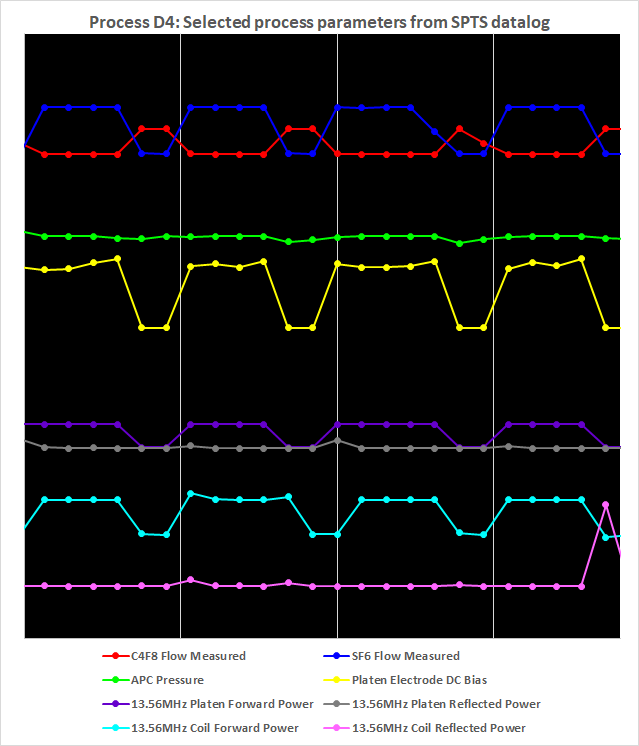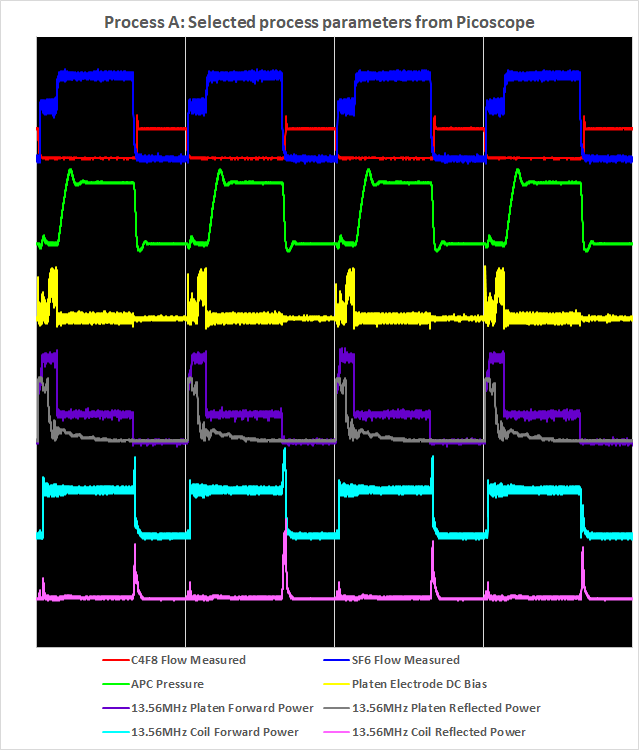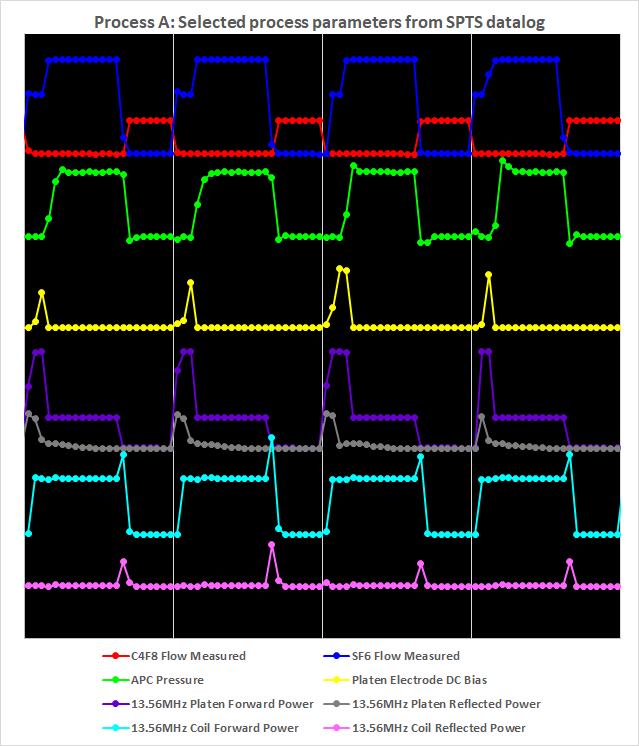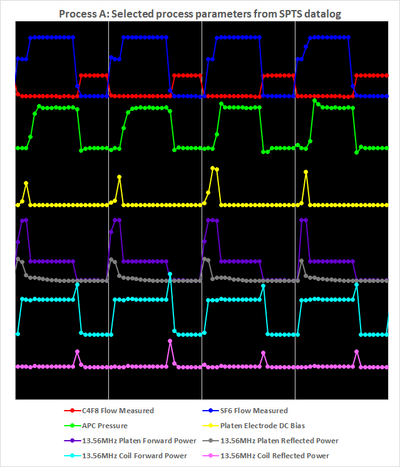Specific Process Knowledge/Etch/DRIE-Pegasus/picoscope: Difference between revisions
Appearance
No edit summary |
|||
| Line 2: | Line 2: | ||
[mailto:labadviser@nanolab.dtu.dk?Subject=Feed%20back%20from%20page%20http://labadviser.nanolab.dtu.dk/index.php?title=Specific_Process_Knowledge/Etch/DRIE-Pegasus/picoscope click here]''' | [mailto:labadviser@nanolab.dtu.dk?Subject=Feed%20back%20from%20page%20http://labadviser.nanolab.dtu.dk/index.php?title=Specific_Process_Knowledge/Etch/DRIE-Pegasus/picoscope click here]''' | ||
[[Category: Equipment |Etch DRIE]] | [[Category: Equipment |Etch DRIE]] | ||
<-- | <!--corona content 17/3-202 jmli --> | ||
= Process optimization using the Picoscope = | = Process optimization using the Picoscope = | ||
Revision as of 12:23, 17 March 2020
Feedback to this page: click here
Process optimization using the Picoscope
The original standard recipes on Pegasus 1 differ in many ways. The second step of one of them is listed below:
| Process A Step 2 parameters | ||
|---|---|---|
| Parameter | Etch | Dep |
| Gas flow (sccm) | SF6 350 (1.5 s), 550 | C4F8 200 |
| Cycle time (secs) | 7.0 | 4.0 |
| Pressure (mtorr) | 25 (1.5 s), 150 | 25 |
| Coil power (W) | 2800 | 2000 |
| Platen power (W) | 140 (1.5) 45 | 0 |
| Common | Temperature 20 degs | |
When running any recipe on theSPTS Pro software Using the SPTS Pro soft
- 4 cycles of Process A
-
Left: Recorded with the SPTS software
-
Right: Recorded with the Picoscope
- 4 cycles of Process D4
-
Left: Recorded with the SPTS software
-
Right: Recorded with the Picoscope








